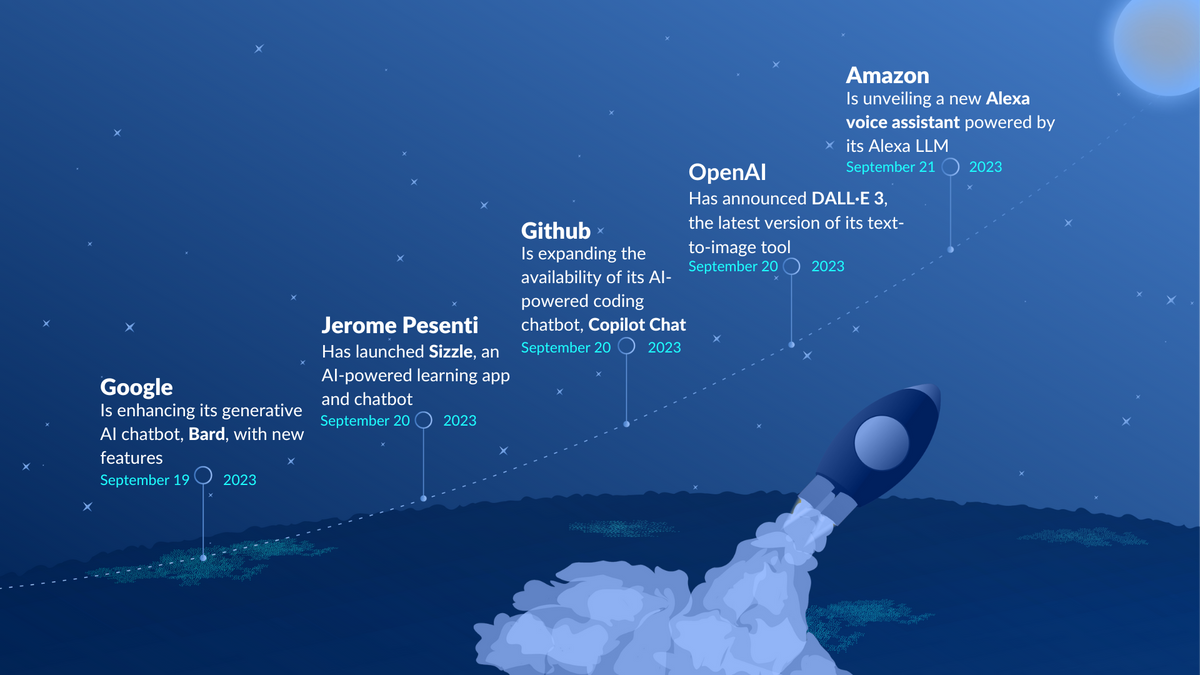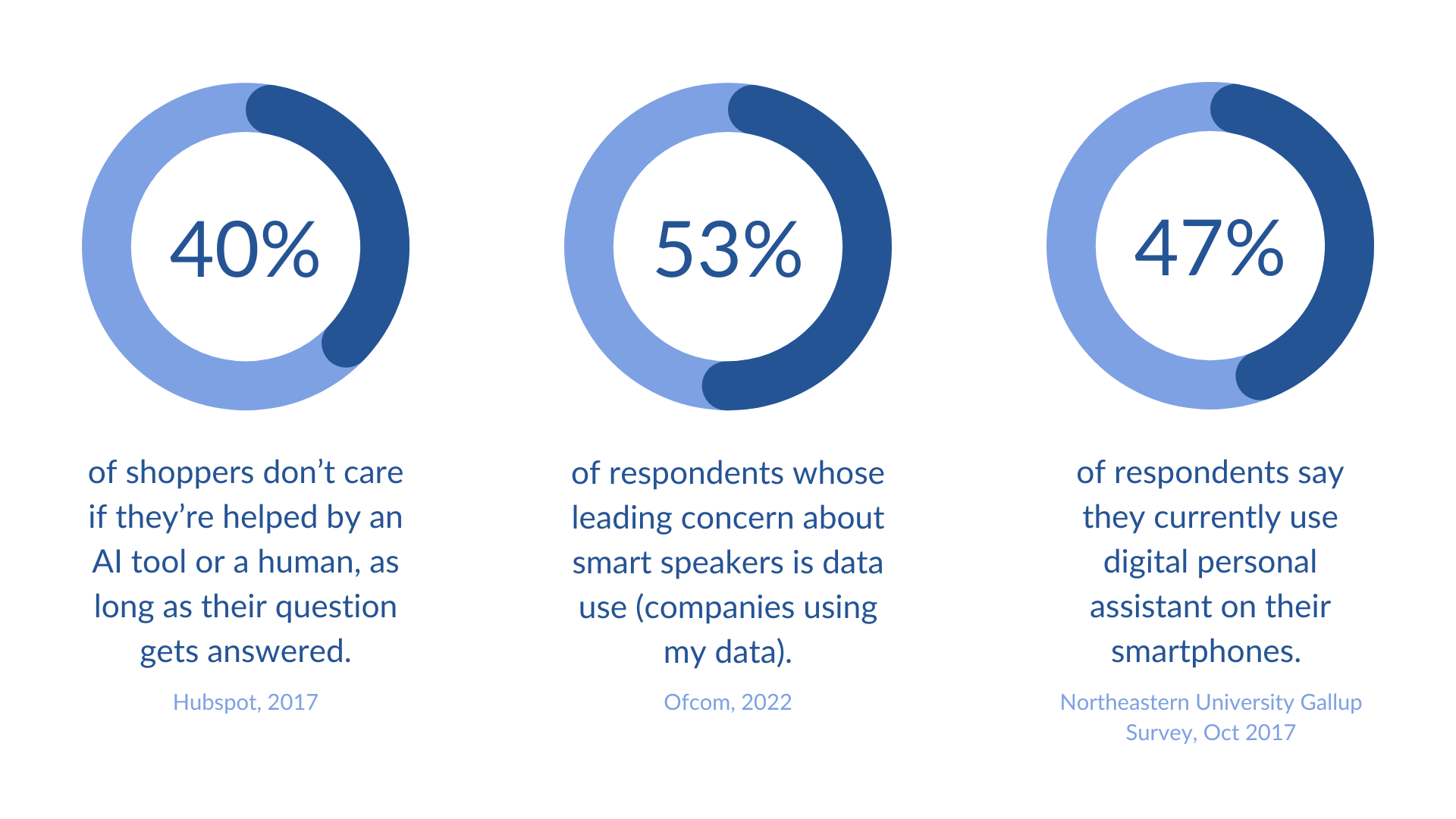Powered by Data - September 25, 2023
Keep up-to-date on conversational AI & chatbots with fascinating data points and weekly news.

Data Points

Last Week in Conversational AI
- OpenAI has introduced DALL·E 3, the latest version of its text-to-image tool. It can generate highly detailed and accurate images based on nuanced requests while incorporating safeguards to prevent the creation of violent, adult, or hateful content. DALL·E 3 is seamlessly integrated with ChatGPT, empowering users to leverage ChatGPT for idea generation and prompt refinement in image creation. Scheduled for release in early October, DALL·E 3 will be accessible to ChatGPT Plus and Enterprise subscribers, and the resulting images can be freely used for reprinting, selling, or merchandise purposes without requiring explicit permission from OpenAI.
Read More - Jerome Pesenti, former VP of AI at Meta, has launched Sizzle, an AI-powered learning app that acts as a personalized tutor. It helps students solve math and word problems step-by-step and covers subjects like physics and chemistry. Sizzle has already gained over 20,000 downloads with an average rating of 4.6 stars. While Sizzle plans to introduce premium features, solving problems will remain free. It recently secured $7.5 million in seed funding led by Owl Ventures to expand its team and add more features.
Read More - Amazon is unveiling a new Alexa voice assistant powered by its Alexa large language model (LLM). This enhanced Alexa aims to understand conversational phrases, interpret context more effectively, and fulfill multiple requests from a single command. It integrates with over 200 smart home APIs, providing a more casual experience for controlling smart devices. While basic Alexa features will remain free, Amazon suggests it may charge for more advanced capabilities in the future.
Read More - Google is enhancing its generative AI chatbot, Bard, with new features that enable users to double-check its responses, collaborate with others, and integrate it with Google's apps and services such as Gmail, Docs, Drive, Maps, YouTube, Flights, and hotels. These features are part of Bard Extensions and are designed to prioritize user transparency, choice, and control. Users can opt-in to grant Bard access to specific apps, and the data accessed is not used for reinforcement learning. Additionally, Google has improved the "Google it" button, allowing users to validate Bard's responses against Google search results and identify potential inaccuracies.
Read More - GitHub is expanding the availability of its AI-powered coding chatbot, Copilot Chat. Initially launched in public beta for business users, GitHub is now making Copilot Chat available in public beta for individual users of GitHub Copilot in Visual Studio and Visual Studio Code. This tool allows developers to seek assistance and get answers to coding questions while writing code, all within their integrated development environment (IDE). Individual users can access Copilot Chat for $10 per month or $100 per year, offering a new way for developers to enhance their coding workflow.
Read More
